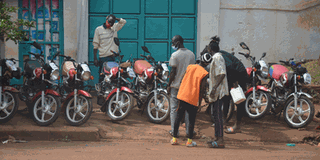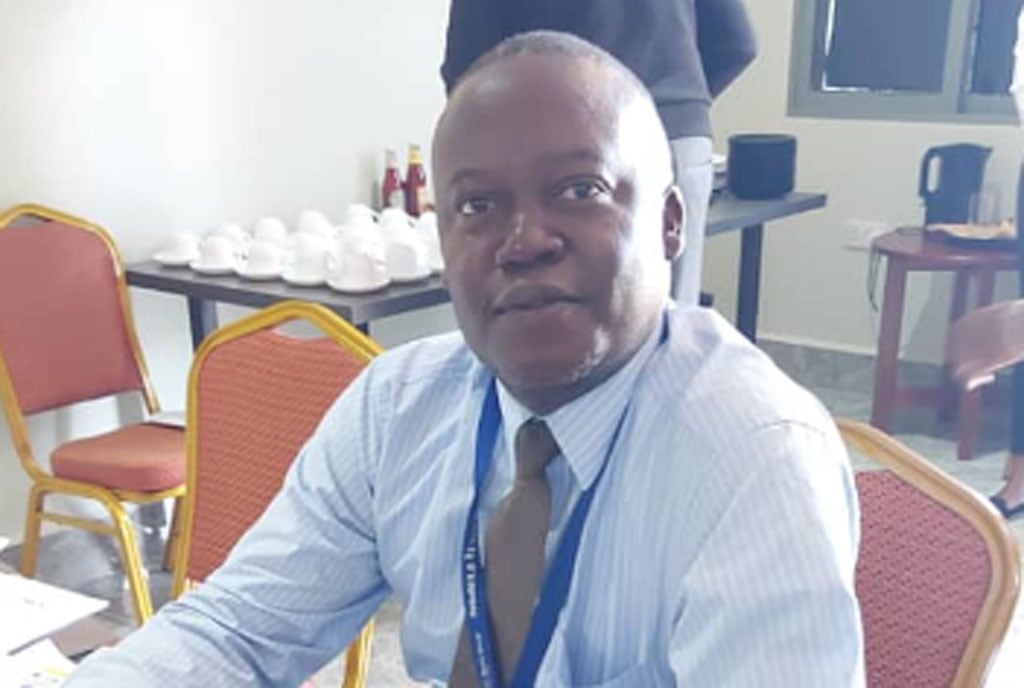Prime
Motorbikes on loans turn curse for riders

Some of the motorcycles that were confiscated from riders over failure to meet their loan obligations in Jinja City in July 2021. PHOTO / TAUSI NAKATO
What you need to know:
- What usually follows is a weekly payment of Shs83,000 for the next 24 or 36 months, bringing the total loan portfolio to between Shs8m and Shs12m for a motorcycle that would have cost Shs5.1m.
With an initial deposit of Shs910,000 and a few modalities, including provision of a national identity card, endorsement from the village chairperson and two sureties, one can walk away with a new Bajaj motorcycle.
What usually follows is a weekly payment of Shs83,000 for the next 24 or 36 months, bringing the total loan portfolio to between Shs8m and Shs12m for a motorcycle that would have cost Shs5.1m.
According to the Uganda Revenue Authority, Ugandans registered 103,169 motorcycles in 2018/2019, the highest number ever in a single year.
This figure was a jump from 49,635 motorcycles registered in 2017/2018, while the annual average registration is 50,000 motorcycles.
The rush to acquire boda bodas has been helped by the increase in the number of organisations that give loans for motorcycles. These include Tugende, Mogos Car and Boda loans, Asaak, World Vision and Watu Credit Uganda.
In Jinja City, at least 100 people queue up daily at Watu Credit Uganda on Main Street, working out modalities on how to acquire a new motorcycle on hire purchase.
Mr Mahad Mutumba, a boda boda rider from Kangulumira in Kayunga District, last week escorted a colleague to Watu Credit Uganda to pick up the logbook and assume full ownership of a motorcycle he had paid for in six months, after making an initial deposit of Shs910,000.
“He has been paying Shs200,000 per week for six months on top of the initial deposit of Shs910,000 he had paid,” Mr Mutumba, also a beneficiary of the scheme, said.
Unlike his colleague, Mr Mutumba acquired his motorcycle for a period of one year and said he is left with four months to complete payment.
“I pay Shs115,000 per week for 24 months, which will bring the total payment to Shs5,520,000 upon completion,” he said, adding that at his stage, of the 30 motorcycles, only two were purchased with down payment. Asked if the high interest rates don’t bother him and his colleagues, he said: “Unlike banks that will give you a secured loan [loans acquired after depositing security], these ones don’t.” He added: “The longer the repayment period, the higher the interest rate, the reason I prefer repaying the loan in 12 months and get over it.”
But Mr Adam Mugoya, a boda boda rider operating in Soweto, Walukuba-Masese, Jinja South, said a rider who completed full payment of the motorcycle loan is at peace, compared to one still paying.
“Upon full payment, the cyclist assumes full ownership, while the one still paying for the loan has to endure challenges and in most cases, can’t even repair the motorcycle because a lot of money is spent on the loan repayment,” he explained.
Mr Fred Musisi, a boda boda rider in Walukuba, Jinja South Division, says out of 100 motorcycles, 97 of them were acquired through higher purchase.
He, however, says the problem with these loans is that after riding the motorcycle for two or three years, it is hard to resale it at a good price because the owner would have rode it with an aim of clearing the loan “at all cost”, which takes a toll on the asset.
However, not all is rosy as some boda boda riders have had their motorcycles seized for failure to meet contractual obligations. At the height of the Covid-induced lockdown, several motorcycles were seized by Watu Credit Uganda after the owners failed to meet their contractual obligations.
Mr Nicholas Malende, the Jinja branch manager of Watu Credit Uganda at the time, said: “Some boda boda riders call and inform us that they are unable to pay the loans and end up returning the motorcycles.”
Mr Eria Musobya, the chairperson of Jinja Boda Boda Riders Association, urged the government to issue guidelines to companies that offer motorcycles on hire purchase.





